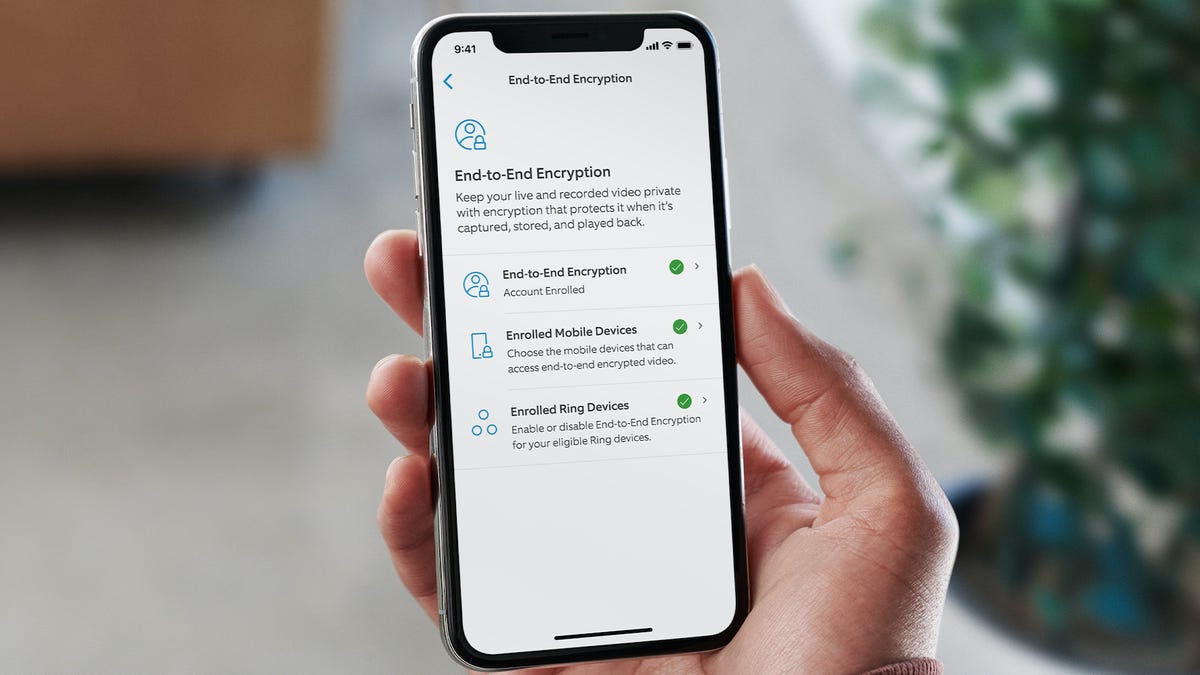Ring beefs up security for its video devices and apps
End-to-end video encryption is finally getting a full rollout, along with a handful of other security measures.

Ring announced today that it will begin expanding and adding security measures to its video devices and apps, including end-to-end video encryption, support for authenticator apps and CAPTCHA security for the Ring and Neighbors apps.
These measures are the latest in a push by the Amazon-owned home security company to improve its own security following a widely publicized exposure of Ring user data in 2019. Last year, the company introduced a security dashboard to the Ring app, along with mandatory two-factor authentication. In early 2021, it began to rollout a "technical preview" of its end-to-end video encryption feature, which was available only on a select few Ring devices.
Beginning today, many of Ring's major video devices will become compatible with end-to-end video encryption, which stops third parties, including Ring's cloud service, from accessing or tampering with videos in transit between devices (e.g. between video doorbell and phone) and at rest. Compatible Ring devices include the Video Doorbell Pro, Pro 2, Elite, Wired, Spotlight Cam Wired, Spotlight Cam Mount, second-gen Stick Up Cam Elite, third-gen Stick Up Cam Plug-In, Indoor Cam, Floodlight Cam, Floodlight Cam Wired Pro and Wired Plus.
Excluded from this list are battery-powered devices, such as the recently released Ring Video Doorbell 4.
In addition to expanding end-to-end encryption, the Ring and Neighbors apps will begin using CAPTCHA to prevent automated login attempts from "bad actors." Both apps will also begin working with authenticator apps, such as Google Authenticator, Twillio Authy, Microsoft Authenticator and LastPass Authenticator, to allow more flexibility in setting up the now-required multi-factor authentication.
While these measures continue to position Ring as an industry leader in video device security, the company faces ongoing criticisms for its role in transforming public spaces into monitored spaces -- and for its ethically fraught relationship with police departments, which can request videos of public spaces from Ring customers via the Neighbors app.

